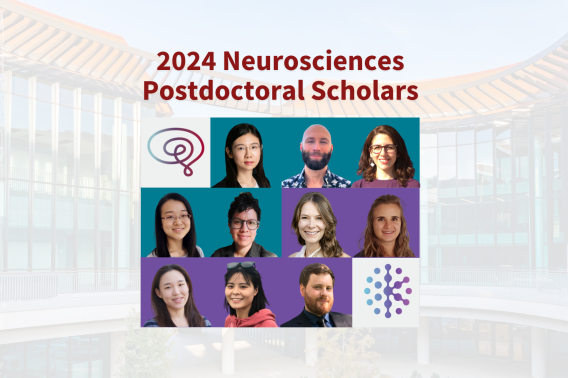Wu Tsai Neuro & Knight Initiative announce 2023 postdoctoral scholars
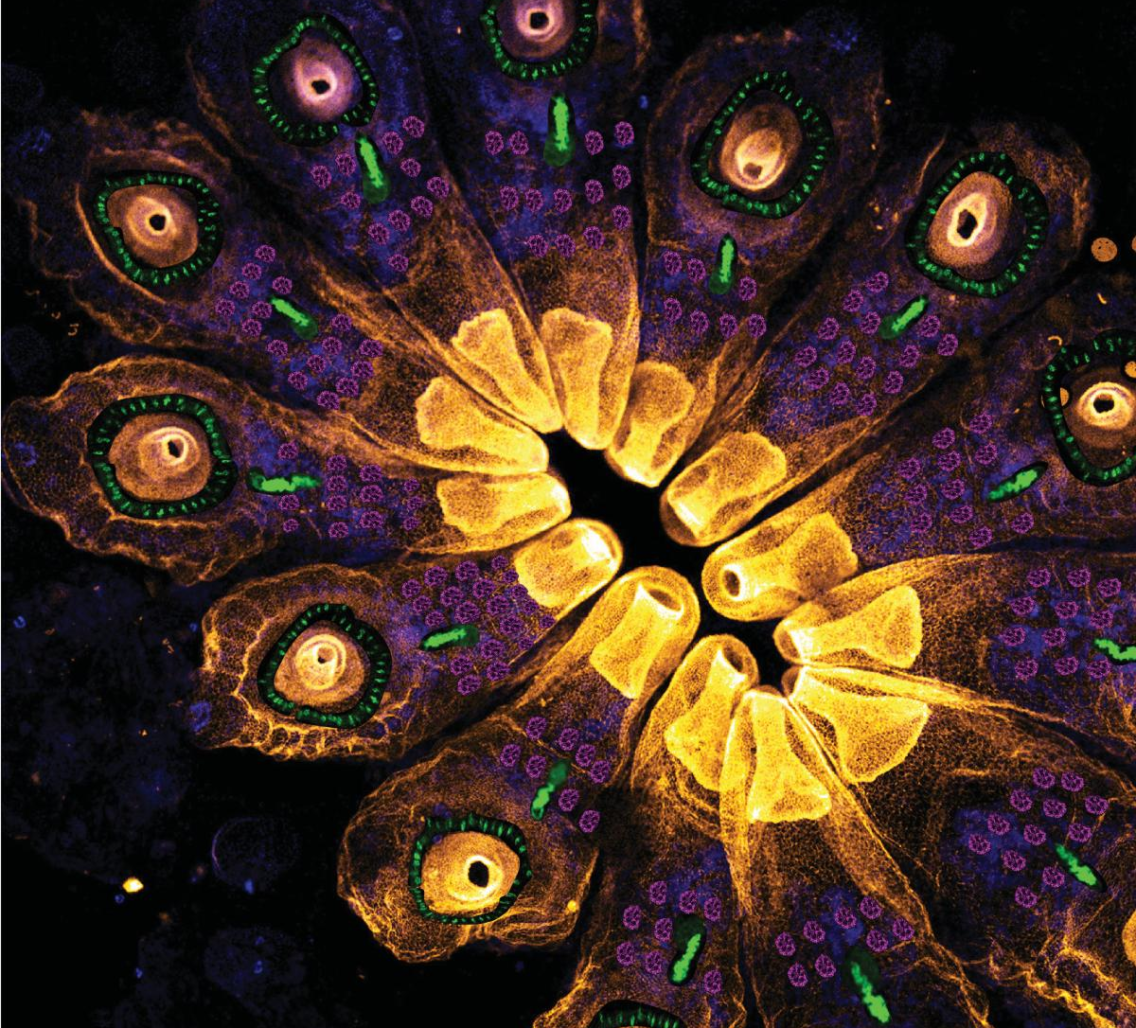
Early career scientists developing retinal prostheses for the blind, studying the origins of chronic pain, and examining the role of sleep in resilient brain aging are among the newest cohort of ten Stanford postdoctoral scholars at the Wu Tsai Neurosciences Institute.
The institute is expanding its program this year to include an inaugural cohort of scholars affiliated with the Knight Initiative for Brain Resilience — a new initiative housed within the Institute focused on advancing the science of healthy brain aging and combating neurodegenerative disease.
Since 2015, Wu Tsai Neuro has granted more than 50 Interdisciplinary Scholar Awards to promising young researchers pursuing bold new ideas in neuroscience that cross traditional disciplinary boundaries. In addition to two years of research funding, the program fosters a community of scholars past and present, who meet regularly to discuss their research and learn from one another’s experiences.
“For nearly a decade, these awards have brought researchers together, bridging the gap across disciplines and unlocking new tools and knowledge about brain function,” said program founder Miriam B. Goodman, who is the Mrs. George A. Winzer Professor of Cell Biology and chair of the Department of Molecular and Cellular Physiology.
This year, Wu Tsai Neuro’s cohort of five Interdisciplinary Scholars will be joined by an additional five Brain Resilience Scholars named by the Knight Initiative. This new program will support scholars whose research promises to advance our understanding of brain aging — including how to promote brain resilience and slow or reverse neurodegenerative diseases and age-related cognitive decline.
“The Knight Initiative is thrilled to be a part of Wu Tsai Neuro’s 2023 postdoc program,” said Elizabeth Mormino, assistant professor of neurology & neurological sciences, who will serve as a mentor to the Knight Initiative cohort. “I’m excited to work with the tremendous inaugural cohort that was selected based on their strong potential to elucidate mechanisms that promote brain health and resilience to disease across the lifespan.”
“We are excited to expand our scope and increase the size of our program,” added Liqun Luo, the Ann and Bill Swindells professor in the Department of Biology and co-director of the Interdisciplinary Scholars Program. “As a unified postdoctoral scholars program, this diverse new cohort of scholars will have ample opportunities to learn from each other and synergize their research programs as they develop into the neuroscience research leaders of the future.”
Meet our 2023 postdoctoral scholars
Interdisciplinary Scholars
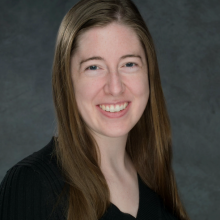
Claire Baum
As a postdoctoral fellow with the Stanford Artificial Retina collaboration, Claire Baum aims to bridge fundamental visual neuroscience with novel device fabrication to develop the first high resolution retinal prosthesis to treat blindness in patients affected by photoreceptor diseases. (See more)
Interdisciplinary project: Restoring vision with epiretinal prostheses
Advisors: E.J. Chichilnisky (Neurosurgery)
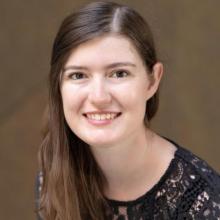
Amy Nippert
Amy Nippert is a neuroscientist working to develop new therapeutics for chronic pain. She is interested in the role of astrocytes, often thought of as supporting cells, in the initiation and persistence of chronic pain. In addition to her research, Amy is passionate about science communication and outreach. (See more)
Interdisciplinary project: Microglia-Mediated Astrocyte Activation in Chronic Pain
Advisors: Vivianne Tawfik (Anesthesia) & Nima Aghaeepour (Pediatrics)

Renzhi Yang
Renzhi Yang is a postdoctoral fellow in the Department of Psychiatry and Behavioral Sciences under the supervision of Prof. Nirao Shah. His research aims to understand the neuronal and genetic mechanisms regulating male reproductive behaviors. (See more)
Interdisciplinary project: Neuronal and genetic imprints of male mating experience
Advisors: Nirao Shah (Psychiatry and Behavioral Sciences) & Kang Shen (Biology)
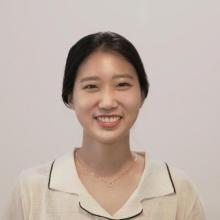
Jiwon Yeon
Jiwon Yeon is working on a project that aims to build a computational model for estimating the next eye movements. She projects the model to be a biomarker for tracking or diagnosing neurodegenerative diseases like Parkinson’s Disease more easily. (See more)
Interdisciplinary project: Tracking Parkinson’s Disease with transformer models of everyday looking behaviors
Advisors: Justin Gardner (Psychology) & Leila Montaser Kohusari (Neurology & Neurological Sciences)
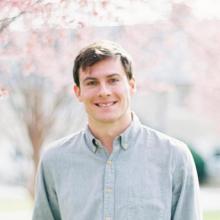
David Zoltowski
David Zoltowski is a computational neuroscientist who is broadly interested in statistical methods for analyzing neural data and probabilistic machine learning. As a postdoctoral fellow at Stanford, he is developing statistical models of nonlinear neural dynamics and working on brain-computer interface algorithms. (See more)
Interdisciplinary project: Improving BCI generalizability with multi-task modeling and autocalibration
Advisors: Scott Linderman (Statistics) & Jaimie Henderson (Neurosurgery)
Brain Resilience Scholars
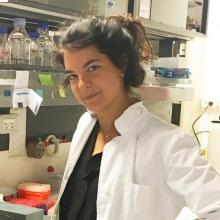
Chiara Anselmi
With expertise is in the areas of regeneration, evolution, the nervous system and cell biology, Chiara Anselmi uses a multidisciplinary methodology to elucidate the cellular and genetic changes associated with neuronal degeneration process in young and old colonies. She aims to help elucidate principal mechanisms that are the foundation of regeneration and aging. (See more)
Brain Resilience project: The origin of neurodegeneration: insight from a unique colonial chordate
Advisors: Irving Weissman (Pathology)
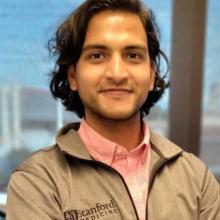
Ravi Nath
Ravi Nath is investigating mechanisms that promote resilience to neurodegenerative diseases. Leveraging his expertise in genetics, neuroscience, sleep, and new model systems, Ravi is pioneering an emerging short-lived vertebrate model system—the African turquoise killifish—to investigate the role of sleep in aging and neurodegenerative diseases. (See more)
Brain Resilience project: Rejuvenating sleep to enhance brain resilience with age
Advisors: Anne Brunet (Genetics) & Karl Deisseroth (Bioengineering)
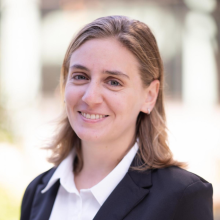
Daniela Rojo Capitanio
With expertise in the areas of psychiatry and behavioral sciences, Daniela Rojo aims to that uncover the processes leading to myeline loss and develop targeted therapies for neurodegenerative disorders like Alzheimer's disease. She aims to understand how the circadian rhythms regulate myelin-forming precursors to impart unique insights into normal and aberrant myelination to develop future therapeutic strategies to restructure myelin. (See more)
Brain Resilience project: Determining the role of circadian transcriptional control in myelin-forming precursors in neurodegeneration
Advisors: Erin Gibson (Psychiatry & Behavioral Sciences) & Brad Zuchero (Neurosurgery)
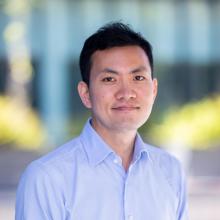
Takeshi Uenaka
Takeshi Uenaka is a neurologist and neuroscientist studying neurodegenerative diseases by using human stem cell-derived neuron, astrocyte, and microglia. He is collaborating with Dr. Michael Bassik to apply CRISPR screening towards identifying the relevant mechanism for eliminating pathogenic protein aggregation. (See more)
Brain Resilience project: Neuron-glia interactions in regulating protein aggregation in human cell models.
Advisors: Marius Wernig (Pathology) & Michael Bassik (Genetics)
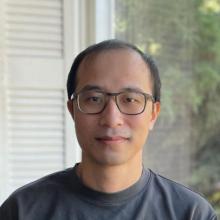
Yi Zeng
Yi Zeng is studying how RNA processing is misregulated during neurodegeneration, focusing on Amyotrophic Lateral Sclerosis (ALS) and Frontotemporal dementia (FTD). He aims to understand the misregulation of RNA processing to provide new insights into the mechanisms of ALS and FTD, as well as identify new ways to diagnose and treat these diseases. (See more)
Brain Resilience project: Elucidating the role of alternative polyadenylation in amyotrophic lateral sclerosis (ALS) and frontotemporal dementia (FTD)
Advisors: Aaron Gitler (Genetics)
Learn more about our postdoctoral programs.
